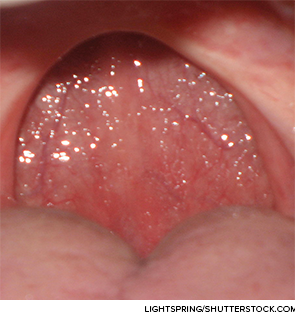Airway, tongue, soft palate, and lateral wall volumes change significantly after OSA-TORS

Can Lingual Tonsillectomy Improve Pediatric Obstructive Sleep Apnea?
Research suggests lingual tonsillectomy can help improve OSA in children
Transoral Robotic-Assisted Surgery Safe for Benign Indications
TORS deemed safe, effective for lingual tonsillectomy, base of tongue resection procedures in benign diseases, including obstructive sleep apnea
Hypoglossal Nerve Stimulation May Be Effective in Obstructive Sleep Apnea
HNS procedure may be considered for patients with OSA who fail medical treatment

Determining Responders versus Non-Responders for Patients with Obstructive Sleep Apnea
Otolaryngology experts review which patients with OSA will likely benefit from surgery
Multilevel Obstructive Sleep Apnea Surgery Helps Decrease Depression, Sleepiness
Does surgical intervention, particularly multilevel surgery, for OSA decrease depression and sleepiness?

Is the Apnea/Hypopnea Index the Best Measure of Obstructive Sleep Apnea?
Patients with Cerebrospinal Fluid Rhinorrhea More Likely to have Obstructive Sleep Apnea
What is the relationship between CSF and OSA?

Frailty, Not Age, May Predict Head–Neck Surgery Outcomes
Otolaryngologists are increasingly using frailty index to assess whether patients can withstand surgery for obstructive sleep apnea, head-and-neck procedures

Obstructive Sleep Apnea Treatment Covered at Sleep Meeting
Implantable upper airway stimulation device for OSA among highlights of SLEEP 2014 conference
- « Previous Page
- 1
- …
- 3
- 4
- 5
- 6
- 7
- …
- 9
- Next Page »